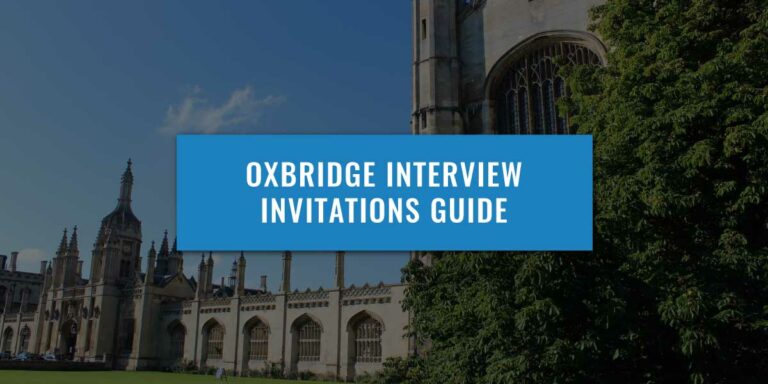As of 2024, the BMAT will no longer operate for Medicine applicants. Applicants for all UK medical schools, including UCL, will be required the University Clinical Aptitude Test (UCAT) for 2025 Entry. Find out more in our BMAT/UCAT 2025 Guide.
The UCL BMAT Cut Off Guide:
Different medical schools use BMAT scores differently in admissions. It’s important to get an idea of what types of scores are required to successfully pass the test. In this article, we’re focusing on the UCL BMAT cut off. We’ll discuss what it is for this year and how it will be used….

Why does UCL use the BMAT?
The BMAT (Biomedical Aptitude Test) is an admissions test used by several medical schools. These medical schools include:
- Imperial College
- Oxford
- Cambridge
- UCL
- Brighton & Sussex
- Keele
- Lancaster
- Leeds
The different universities use the BMAT scores in different ways, and although UCL does not have strict cut-offs for marks, the university has given some indication as to average scores achieved by applications to this medical school. Although the UCL BMAT cut off is therefore not clear, this article will aim to clarify rough scores that would be likely to correlate with getting an interview at UCL and would equate to an approximate UCL BMAT cut off.
What does UCL say about the BMAT cut off?
Although the UCL website has not released a University College London BMAT cut off, it comments that comments that:
“High scores throughout each section will strengthen an application. Candidates who score below the average for their cohort are less likely to be successful. In November / December, the average scores for the cohort will be posted and available to the public.”
This suggests that there will not be a strict UCL BMAT cut off and that you can still pass with a low score. However, higher scores will make an application more likely to be successful. It’s worth noting that the whole application will be taken into account.
How does this UCL BMAT cut off compare to other years?
The ‘average applicant’ to UCL generally scores of 4.5-5 on sections 1 and 2, as well as roughly 3.2 Grade A on section 3.
The averages for previous year’s applications to UCL are:
UCL BMAT Scores in 2020 (Applicants / Interviewed / Offer Holders):
Section 1: A score of 4.3 / 5.2 / 5.2
Section 2: A score of 4.1 / 4.8 / 4.8
Section 3: A score of 2.9A / 3.2A / 3.2A
UCL BMAT Scores in 2019 (Applicants / Interviewed / Offer Holders):
Section 1: A score of 4.3 / 4.9 / 4.9
Section 2: A score of 4.6 / 5.2 / 5.2
Section 3: A score of 3.1A / 3.3A / 3.3A
UCL BMAT Scores in 2018 (Applicants / Interviewed / Offer Holders):
Section 1: A score of 4.5 / 5.1 / 5.1
Section 2: A score of 4.6 / 5.3 / 5.3
Section 3: A score of 3.2A / 3.4A / 3.5A

However, these are averages so it is worth noting that those offered an interview may have scores that are higher than this. Approximately 30% of applicants are offered an interview at UCL.
Furthermore, UCL may ask you about your essay in section 3 during the interview. It is wise to make notes of your arguments during the test essay section because you do not get to keep a copy of your answers.
How does the UCL BMAT scores compare to national averages?
The weighting and the score bands of the BMAT have been specifically designed with a typical applicant applying to a high-standard university in mind. This means that on average, and for the more highly selective of medical schools in the UK, scores in the region of 5.0 are to be expected. The best applicants will score a little higher (up to around 6.0), however, very few applicants will achieve a BMAT score higher than 7.0.
For more information on how the BMAT is scored and the ranges of these bands for each year, see the BMAT website admissions testing page.
For the rest of your UCL application, UniAdmissions offers a course to maximise your potential at succeeding – for more information, see our non-Oxbridge medicine programmes.
UniAdmissions Medical School Interview Programme
With the UCAT and BMAT out of the way, the next step in your application is your interview. As with any other skill, the interview can be prepared for.
Student’s who enroll on UniAdmissions’ Programmes are 7 times more likely to get a place at medical school than the national average. Do you want the odds on your side?
How Do Universities Really Use Your BMAT Score?
We’ve discussed the types of scores you can expect to see from the BMAT and what score you need to be successful. But how do Universities really use your BMAT results? In this article, we discuss the individual BMAT requirements from nine medical schools across the UK and what they are expecting from their applicants.








